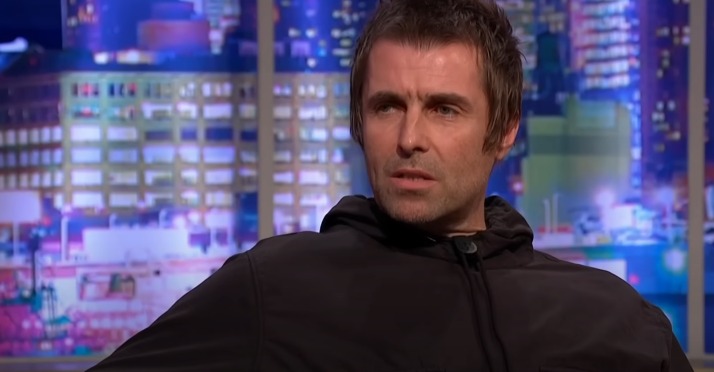It wasn’t unexpected; rather, it was natural. The band Oasis gave voice to a generation that was disillusioned but hopeful, broken in a way that felt as tragic as it was predictable, and they brought Manchester’s gritty side to mainstream radio. The group’s demise was sealed in August 2009, not onstage but behind the scenes, during an offstage confrontation that mirrored years of growing hostility. Ever since, the question, “Why did Oasis break up?” has been asked. The true answer, however, cuts across decades of unresolved tension, creative divergence, and a particularly flammable brotherhood, and it goes beyond a single argument.
In Paris, Oasis was supposed to be the main act at Rock en Seine on the evening of August 28, 2009. Expecting swagger and sing-alongs, fans crowded in. Instead, they were shocked to learn that the show had been canceled and that the band had been destroyed in a violent altercation backstage. Liam Gallagher is said to have insulted Noel’s family before swinging Noel’s guitar at him like a warhammer, according to reports that are now verging on folklore. It was more than just a tantrum. It was the irreversible point. “I simply could not go on working with Liam a day longer,” Noel said in a statement after leaving. Most fans thought it was sudden. On the inside, however, the fabric had been fraying for a while.
Oasis Band Information
| Oasis Band Information | Details |
|---|---|
| Band Name | Oasis |
| Origin | Manchester, England |
| Genres | Rock, Britpop |
| Years Active | 1991–2009, 2024–present (reunion) |
| Key Members | Liam Gallagher (vocals), Noel Gallagher (guitar, vocals) |
| Most Famous Albums | Definitely Maybe (1994), (What’s the Story) Morning Glory? (1995) |
| Label | Creation, Sony, Epic, Columbia |
| Spinoffs | Beady Eye, Noel Gallagher’s High Flying Birds |
| Official Website | Oasis on Wikipedia |
The Gallagher brothers were like flint and steel from the beginning, sometimes creating genius but more often causing mayhem. Liam was instinctive with his wild charm and snarl. In a storm, Noel, the meticulous craftsman, looked for structure. Although their disparate personalities fueled the band’s chemistry, they gradually damaged their collaboration. During their U.S. tour in 1994, Liam famously hit Noel with a tambourine during a performance in Los Angeles. Noel left then, too, but came back after a few days of introspection. The theme would be that rhythm of breakup and grudging reunion.

What at first seemed like theater to the tabloids turned out to be blatantly destructive over time. Fans, tour managers, and even bandmates started to realize the price. Often reclusive during high drama, Noel lost himself in songwriting. Liam leaned more heavily on uncertainty. One set fires on stage, the other constructed bridges in the studio. By the time Dig Out Your Soul, their last album, came out, their collaboration had become a duty driven more by a contract than by friendship.
The resentment was piercing and personal, not just artistic. Using verbal abuse and threats of legal action, Liam publicly attacked Noel, involving family members in the conflict. The fighting screamed dysfunction instead of hinting at unresolved tension. The band had become “a toxic marriage you can’t leave,” according to Noel. In the end, he succeeded. Noel’s solo project featured clearer lines and fewer confrontations, while Liam’s Beady Eye maintained the musical vibe of Oasis.
Despite the split being a part of music history, neither brother has abandoned Oasis entirely. The name lingers in the atmosphere like a ghost that fans can’t get rid of. They have exchanged jokes and jabs on social media in equal measure. Every suggestion of a potential reunion turns into a news story. Nevertheless, there is a discernible shift. Liam has declared in recent interviews that he is prepared to “bury the hatchet.” Normally wary, Noel has begun to talk about the band with something approaching affection. As a reunion tour promised a final dance under the Oasis banner, those rumors became a reality by 2024.
Additionally, that 2009 split signaled a more general change in the cultural tides. The once-boisterous, denim-clad cool that characterized Britpop had begun to wane. Fans were gravitating toward introspective bands like Radiohead and Coldplay. The working-class defiance and bar fights that Oasis took for granted started to seem archaic. Their split represented more than just sibling rivalry; it also marked a shift in what mainstream rock would eventually come to appreciate.
The conflict between the Gallaghers wasn’t isolated. Both critics and peers were drawn to their battles. Prior to becoming a vocal opponent, Robbie Williams was a member of their inner circle. After years of sarcasm, Blur’s Damon Albarn and Noel finally shook hands. Nevertheless, Oasis was respected despite the fights. Numerous people have acknowledged their influence, including Dave Grohl and Paul McCartney. Their Knebworth performances in 1996, which were witnessed by an incredible 250,000 people, continue to be a masterwork of mass communication.
In the end, Oasis’s story is about more than just collapse. It explores the complexities of sibling relationships and how a single look or chord on a guitar can evoke both admiration and hostility. So, what caused Oasis to split up? Because it eventually becomes impossible to maintain brilliance inside a pressure cooker of hurt, history, and ego. However, their absence did not lessen their influence. Raw, unresolved, and unforgettable, Oasis remains alive in every festival chant and nostalgic playlist.
